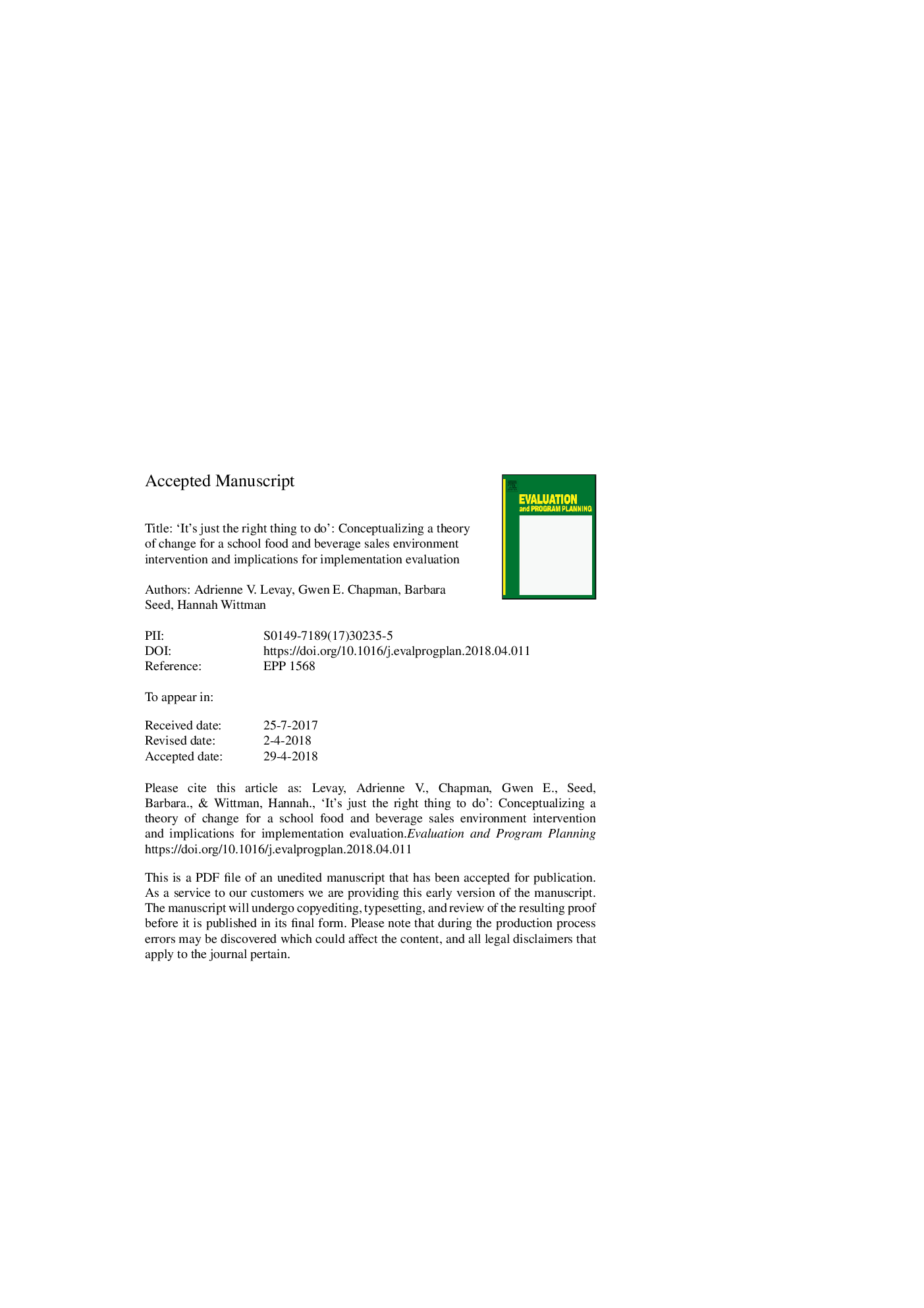| Article ID | Journal | Published Year | Pages | File Type |
|---|---|---|---|---|
| 6791970 | Evaluation and Program Planning | 2018 | 41 Pages |
Abstract
School food environments are the target of nutrition interventions and evaluations across the globe. Yet little work to-date has articulated the importance of developing a theory of change upon which to base evaluation of both implementation and outcomes. This paper undertakes an interpretive approach to develop a retrospective theory of change for an implementation evaluation of British Columbia's school food and beverage sales Guidelines. This study contributes broadly to a nuanced conceptualization of this type of public health intervention and provides a methodological contribution on how to develop a retrospective theory of change with implications for effective evaluation. Data collection strategies included document analysis, semi-structured interviews with key stakeholders, and participant observation. Developing the logic model revealed that, despite the broad population health aims of the intervention, the main focus of implementation is to change behaviors of adults who create school food environments. Derived from the analysis and interpretation of the data, the emergent program theory focuses on the assumption that if adults are responsibilized through information and education campaigns and provided implementation tools, they will be 'convinced' to implement changes to school food environments to foster broader public health goals. These findings highlight the importance of assessing individual-level implementation indicators as well as the more often evaluated measures of food and beverage availability.
Keywords
Related Topics
Health Sciences
Medicine and Dentistry
Public Health and Health Policy
Authors
Adrienne V. Levay, Gwen E. Chapman, Barbara Seed, Hannah Wittman,
